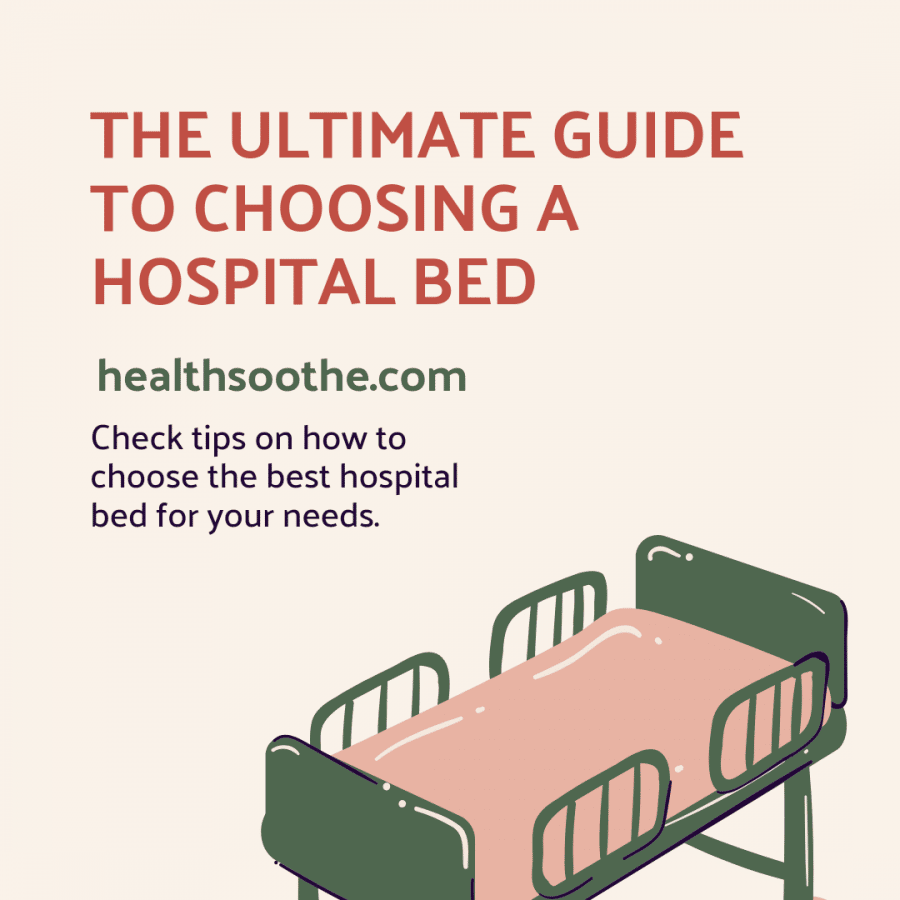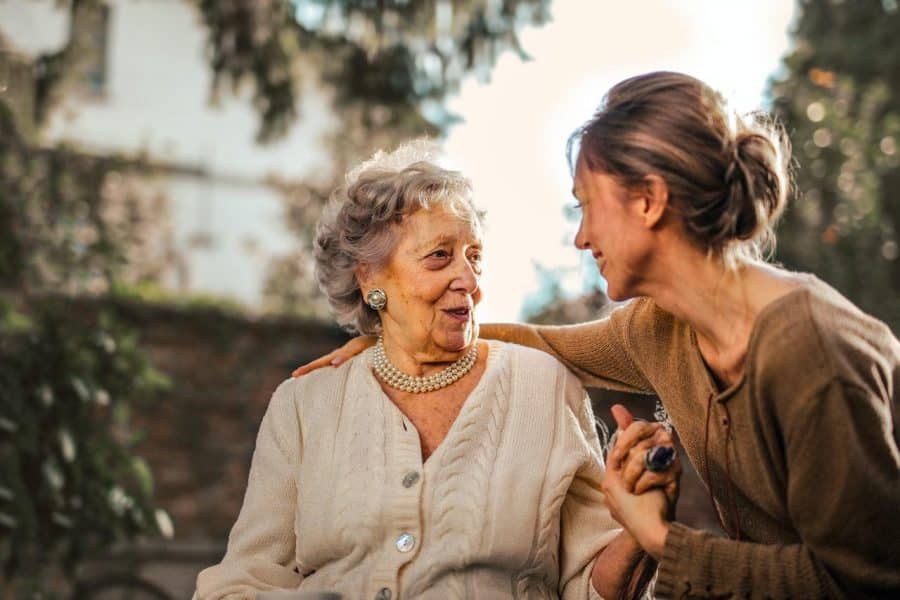Seniors are at a higher risk of requiring hospitalization than middle-aged or younger people. This is because older adults are more likely to develop illnesses that warrant more attention. Although staying in the hospital can speed up the recovery process as patients are close to caregivers, it can have detrimental effects on older adults. For instance, they may face several hospital risks and infections.
Additionally, elders can be distressed when they're away from home or in new surroundings. Therefore, lowering hospitalization is necessary for their overall recovery process. With that in mind, here's a simple guide to reducing hospital admissions among seniors:
1. Opt For Home Health Care
In addition to lowering hospitalization in seniors, home health care offers numerous benefits, including the following:
- Provides safety benefits: The aging population is at a higher risk of suffering from falls due to a reduction in mobility, vision, and balance. Being in unfamiliar environments can augment such dangers. But taking care of your loved one at home lowers these risks.
- Supports nurturing relationships: Most seniors feel detached from their loved ones when they move out of their homes. However, patients who receive home care can have private conversations with family members, friends, and other relatives without interruption, enabling them to stay connected to their loved ones.
- Patients get support for treatment: Being at home enables you to assist your loved one concerning dietary needs and physical or occupational therapy, among others.
- Keeps morale high: Seniors can feel more comfortable in their homes and lead happier lives as they connect better with family and friends. This leads to faster and long-term recovery.
- Supports activities of daily living (ADLs): Being at home enables seniors to acquire day-to-day help with the personal care they require, like grooming, bathing, and medication reminders, that helps them maintain a good quality of life.
If you want to obtain a higher degree of care, enlist the help of an experienced medical social worker, such as the ones found at homenursingwithheart.com.
2. Have Them Vaccinated
As people age, their immune systems get weaker and, thus, may not be as effective at fighting diseases. For this reason, vaccinating your loved one and helping them get boosters for enhanced protection is essential. For instance, they may get vaccines to help prevent pneumonia. Seniors are at a higher risk of obtaining pneumococcal disease, one of the leading causes of hospitalization in older adults.
3. Observe Proper Medication Management
Improper medication errors at home, like taking the wrong pill, taking one too early or too late, and taking the wrong dose, can lead to adverse reactions, resulting in hospitalization. Thankfully, proper medication management can combat such issues. Below is an in-depth discussion of its benefits.
- It helps get rid of adverse effects: If your senior loved one is taking more than one medication, there can be chances of confusing prescriptions. This can result in adverse side effects. However, managing medications well ensures that the patient is taking their medications correctly, avoiding abnormal reactions.
- It boosts therapeutic results: Taking medications on time ensures your loved one recovers quickly and successfully, eliminating the need for hospitalization.
- It's customized and collaborative: Doctors prescribe drugs based on a patient’s unique requirements, lifestyle, overall health, and other conditions that can influence their medication therapy. Customized medication management is a collaboration between you, your loved one, your healthcare provider, and other experts in the field.
- It’s cost-effective: Mistakes concerning medication administration and intake can have severe consequences that can result in the deterioration of a patient's condition or even a medical emergency. Such cases would require hospitalization and more treatments, which can be expensive. Proper medication management can help you avoid these extra costs.
Medication management plays a key role in seniors' overall health, especially those who take multiple drugs to treat different diseases and disorders. Therefore, work closely with professionals to ascertain that your loved one is reaping the greatest benefit and the best possible results from their drugs.
4. Assess Risks
Risk evaluation enables you to identify early signs of disease in your elderly loved one. Doing so allows you to take appropriate steps to help them improve their health as soon as possible. This way, you lower the chances of them getting admitted to a hospital.
Causes Of Hospital Admission Among Seniors
As people age, their immune system weakens, which increases their hospital visits. Below are some top reasons why older adults get admitted to hospitals:
1. Coronary atherosclerosis
This is classified as a disease of aging. It's caused by the formation and growth of plaques within the arterial lumen. Additionally, it can be caused by simultaneous loss of vascular elasticity. This condition can result in reduced blood flow through the influenced vessel and lead to death.
2. Diabetes
This is a chronic disease that's common among older adults. Mostly, seniors are more vulnerable to type 2 diabetes because of the mixed effects of rising insulin resistance and damaged pancreatic islets associated with aging. With time, diabetes can cause adverse health problems, like kidney issues, stroke, heart disease, and nerve impairment that may result in amputation. Therefore, it's vital to manage it in hospitals.
3. Stroke
Another common cause of seniors’ admission to the hospital is stroke, sometimes called a brain attack. This occurs when something stops the blood supply to a brain section or when a blood vessel explodes. A stroke can lead to long-term disability, lasting brain impairment, or death.
4. Pneumonia
This is a type of acute respiratory infection that affects the lungs. Usually, the lungs have tiny sacs called alveoli that fill up air when a healthy individual breathes. However, when one suffers from pneumonia, pus and fluid pervade the alveoli, making breathing painful and reducing oxygen intake.
5. Chronic obstructive pulmonary disease (COPD)
This is a lung disorder that leads to blocked airways. It's a progressive condition that takes numerous years to develop and is most common in older adults since their lungs aren't as robust as those of younger people.
6. Cardiac arrhythmia
Heart arrhythmia occurs when the electrical signals that regulate the heart's beats don't function properly. It can cause the heart to beat too slowly or quickly. Therefore, older patients must be monitored in a hospital to control this condition, which can sometimes be life-threatening.
7. Septicemia
This is a severe bloodstream infection. It arises when bacterial infection from other body parts, like kidneys, bladder, skin, etc., enters the bloodstream. This can be hazardous since the bacteria and their toxins can move through the bloodstream and then to the entire body. Septicemia can easily become life-threatening, so it must be treated in a hospital.
Knowing the various causes of hospitalization amongst seniors enables you to keep a close eye on your loved one and identify early signs of any condition. This ensures your dearest one goes for medication as early as possible, preventing the situation from worsening and reducing hospital admissions.

Risks Of Elderly Admission In Hospitals
Seniors admitted to hospitals are susceptible to complications that aren't part of their current illnesses. Some include the following:
1. Functional Decline
This is among the leading complications of hospitalization for seniors. The decrease in physical or cognitive functioning lowers an elderly patient’s ability to carry out self-care activities of daily living (ADL). It can be caused by prolonged bed rest, reduced physical activities, or improper use of gadgets that limit their mobility.
Functional decline can lead to the following:
- Dehydration
- Undernutrition
- Increased bone loss
- Skin tears
- Depression
- Incontinence
A patient may develop this condition some days after admission. However, since it builds up slowly, you may not easily notice it.
2. Hospital-Associated Delirium
Hospital delirium is a change in mental abilities that results in emotional disturbances, confusion, lack of awareness of the environment, and unusual behavior. It can develop swiftly, mostly hours or days after admission, lasting for hours or months. Mostly, delirium leads to extra long-term complications and longer hospital stays.
3. Rise In The Number Of Drugs Taken
Polypharmacy, or the use of multiple drugs, is common in older adults, especially those admitted to hospitals. This can result in adverse drug reactions (ADRs), which may occur immediately after a patient takes a single drug dose, after prolonged medication use, or when two or more drugs interact negatively.
Even though patients of all ages can suffer from ADR, the elderly are more vulnerable since their bodies change how they process drugs. They have lowered efficiencies and modified metabolism, increasing their reaction to numerous drugs.
4. Falls
Another common complication among hospitalized seniors is falling. It mostly occurs due to medical conditions, surgery, procedures that can leave them confused or weak, or medications. Falls in hospitals may lead to injuries, such as head trauma, fractures, and internal bleeding, which require extra treatment, prolonging their hospital stay.
5. Pressure Injuries
As mentioned above, seniors spend most of their time in bed. Since their skin is less elastic and more fragile, sleeping in one position for long periods can result in pressure sores. These may be accompanied by depression, pain, and infections, leading to health deterioration or even death.
6. Sleep Loss
Elderly patients can find it hard to have a good night's sleep in hospitals. This is because such places can be noisy and are lit more brightly than home. Additionally, doctors may interrupt their sleep as they check up on them, take blood, and conduct other patient care duties. Lack of sleep can lead to higher risks of delirium and may also worsen patients’ condition.
These are just some risks your loved one can succumb to when admitted to a hospital; unfortunately, some can lead to death. For this reason, it'd be best to take good care of your beloved at home to avoid hospitalization and prevent them from developing one or more of these conditions.
Importance Of Reducing Hospital Admissions For Seniors
Minimizing hospital admissions offers numerous advantages to older adults. Below are some of the top benefits:
1. Reduces Costs
Undoubtedly, hospital admissions can result in high costs, and even if you have insurance coverage, there are some deductibles you may have to pay. Also, you may spend a lot of money going to and from the hospital, especially if the facility is far from your home. One of the best ways to save money and your loved one is by staying out of the hospital.
2. Reduces The Chances Of Infection
Although healthcare professionals try to keep everything clean and sterile, hospital-acquired infections are popular among seniors. Staying out of the hospital lowers the risk of developing more health issues.
3. Leads To Better Sleep
Another significant reason for reducing elderly admission to hospitals is to gain a good night's sleep. As mentioned above, most seniors are sleep-deprived during a hospital stay due to uncomfortable beds, lighting up all night, and machine-beeping. Staying home and avoiding hospital admission ensure your loved one sleeps comfortably in their bed and recovers in a cozy environment.
4. Lowers The Risk Of Developing Hospital-Induced Complications
As outlined above, older adults are susceptible to various hospital-acquired complications that can occur immediately or take some time to develop. One of the best ways of reducing such risks is to have senior patients stay away from hospitals.
5. Results In More Personalized Care
Healthcare facilities have timed routines that can be inconvenient for patients. However, they can receive more customized care if they stay out of the hospital. Ideally, they can have one doctor to visit regularly or have home-based care, which is much better than random doctors attending them.
6. Leads To Peace Of Mind
When seniors are cared for at home, family members can have peace of mind as they don't need to worry about how they’re doing. Additionally, they can witness personalized care for their loved ones, enabling them to go on with their daily activities stress-free.
Reducing hospital admissions among seniors benefits not only them but also their carers.
Conclusion
Older adults require more attention and care due to their vulnerability to various diseases and physical injuries. Without proper care, your loved ones can develop conditions that can lead to hospitalization. However, it can be risky for seniors, who, as a result, may develop serious infections. Therefore, it's best to ensure your elderly loved one is safe and cared for properly at any moment by avoiding hospitalization.


